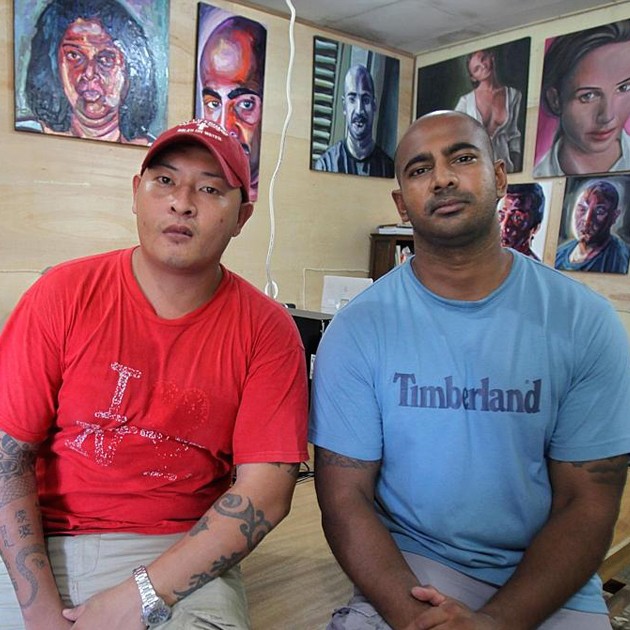As a general rule of thumb, when you run a drug smuggling ring in a country with a severe death penalty, you’re taking a very big risk. That risk is usually that if you get caught by the government or rival criminals, you’re probably going to be killed. This is the horrific situation that Australian artist Myuran Sukumaran’s is currently facing. His story is a sad one and, along with his alleged co-ringleader Andrew Chan, it highlights the brutality that constantly churns somewhere beyond the horizon of our own lives (assuming you’re not selling heroin while you read this).
So when news broke that the Indonesian government quoted a poll on the fairness of capital punishment that was commissioned by radio station Triple J’s Hack program in justifying their decision to execute the proven drug smugglers, critics on both sides reared their heads in incredulity.
The question offered by the current affairs program, “In your opinion if an Australian is convicted of drug trafficking in another country and sentenced to death, should the penalty be carried out?”, drew a slim majority (52%) in the affirmative. Seems, at least to me, like a reasonable tale of an established news network staying grounded in a story while also presenting its listeners with a moderated voice. However, not many who were against the Bali Nine’s execution seemed to agree.
Amongst these critics was Australian Catholic University’s vice chancellor Greg Craven who told ABC News “If these two men really are executed then the radio station that commissioned the poll, the people who delivered that poll, and the people who answered that poll in the affirmative will know that they have had a part, no matter how small, in the death of two other people,” which is a horrible sentiment that blames a large section of our populous for a decision made by a foreign government.
It’s true, Canberra-based Indonesian ambassador Nadjib Riphat Kesoema told press, “We can say that 52% of Australians support Indonesia’s position.” And yes, that is a gross over-exaggeration given that it was an opt-in survey rather than a census. Kesoema deserves criticism for that but it seems like a radical notion for Greg Craven to blame any Australian who felt the right to express an opinion for decisions that are consequently passed out.
Meanwhile, Indonesian Attorney-General H.M. Prasetyo was reported as saying “many Australians support the execution and it is one of the things that pushes us to feel we are not making a mistake” which is slightly more moderate interpretation of the figures compared to Kesoema’s summary.
Greg Craven’s response to this was to suggest a better way for the media to report and conduct surveys to avoid being held responsible for simply having a political opinion.
“The real question is, ‘are you in favour of the two reformed Australians Andrew and Myuran having their heads blown off or their hearts blown out for smuggling drugs, for which they would have gone to jail in most other countries?'” he said in a display of loaded language, the kind of which we usually strive to avoid when collecting balanced information from the public.
It’s one thing to blame public pressure and influence on a subsequent outcome, but to demean a news outlet simply for collating fair data on a current event is a grim indictment on a man who occupies a significant role in an educational establishment. Professor Greg Craven is one of the people behind the Mercy Campaign a Facebook group with a petition which, in terms of contemporary international law, is a pretty inconsequential way to encourage community involvement, especially when he wants to spray blood on the hands of Australians who simply selected a binary response to Triple J’s survey.
In an interview with the 7.30 Report, Professor Craven also compared the imminent execution to the murders that transpired during the Martin Place Siege and the Charlie Hebdo massacre. Comparing legally sanctioned killings (following the violation of regional law) to acts of indiscriminate terrorism (that included the deaths of innocent Australian citizens) only demonstrates how out of touch these ideas are.
We will be sad to hear when the executions are carried out, but they are being done so under the law of a country which was broken by the sentenced men. If Craven wishes to seriously suggest this is partially due to the actions of Triple J, the Australian public and the notion of free speech, then perhaps there are other issues he needs to first work out before blaming others for the deaths of incarcerated men.

